Sattari on the Opening Ceremony for the Second Phase of Takhte Jamshid Petrochemical Co.:
The knowledge-based ecosystem has turned “petrochemical” into a dynamic industry
The knowledge-based ecosystem has turned “petrochemical” into a dynamic industry
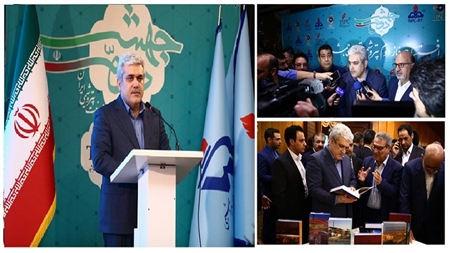
This morning, the vice president for science and technology affairs traveled to Mahshahr to open several knowledge-based projects in petrochemical field. At the ceremony to unveil the second phase of “Takhte Jamshid Petrochemical Co.”, Sattari emphasized the promotion of knowledge-based culture in passing from raw and source-based economy toward a self-efficient industry based on domestic industry.
During the ceremony, Sorena Sattari expressed his condolences for the martyrdom of General Soleimani and the terrible accident of passing of some Iranians and non-Iranians in the Ukrainian plane crash and talked about the entrance of the petrochemical industry of the country to a new stage, adding: fortunately, the petrochemical industry has taken a new step with the help of knowledge-based companies and activists in the innovation ecosystem.
Pointing out that a part of the important petrochemical needs of the country are met by domestic knowledge-based companies, Sattari added: we have been able to experience the true concept of petrochemical industry. Components of a real, sustainable, and dynamic industry, including licensing, formulation, design, and optimization today are handled by local experts and the country"s petrochemical industry has made remarkable progress. This was made possible by the transition from a crude sales culture to a renewed attention to the technological innovations and capabilities of our valuable human capital.
Pointing out the capacity of petrochemical products of the country with the opening of the second phase of Takhte-Jamshid Petrochemical Co. and unveiling 10 catalyst groups, Sattari mentioned: part of today"s opening was dedicated to increasing the capacity of petrochemical plants and increasing 55,000 tons of PBR capacity. In another part, a contract was signed for the production of nine groups of petrochemical industry catalysts and one catalyst required by Karoun petrochemical Co. with the help of the investors of the private sector, knowledge-based companies and the petrochemical industry of the country.
Support and Empowering of Knowledge-based Companies Active in the Petrochemical Field
Sattari explained about the serious determination of knowledge-based companies producing strategic and sanctioned knowledge-based products as one of the priorities of this year, adding: given the importance of catalysts, we are seriously following up the empowerment of knowledge-based companies active in the field. In addition, a considerable part of these needs have been internalized with the help of the knowledge-based companies. Fortunately, we have achieved significant advancements in steel industry, and a large part of the needs of the industry to catalysts has been met by Iranian-made products.
knowledge-based economy and culture-building technologies development headquarter emphasized: we have to provide an indigenous ecosystem that can nurture industry and craftsmen. The difference is between factory and industry in the use of knowledge-based abilities and the creativity of human resources. Industry is the place of design, innovation, optimization and production of new and complete standards based on the move of production and upgrading, and it improves itself with the flexibility that comes from manpower innovation. We must strive to make it happen in the petrochemical industry as well.
Technology Is Learnable
The vice president for science and technology affairs expressed: one misconception is that technology is buyable, while technology and innovation must be learned to fuel our movement. This type is the cause of our reliance on foreigners despite several contracts for technology transfer. A product is produced by factory but does not reach industry and technology. If we look at the creation of industries with this new look, manpower will find its true place and industry will orbit this new thinking which is the basis of the knowledge economy.
Sattari mentioned that a multi-gram vial of biotechnology drugs is sold with a prize several times more than an oil barrel, adding: this demonstrates the importance of placing knowledge on the raw material and serious effort must be made on the quantity and quality of the creative human force.
The president of the national elites foundation added: we are stronger than the previous round of sanctions and the industries are no longer afraid of dependency. While catalysts have been one of the needs of industries such as steel for the past few years, today we are one of the leading producers of these catalysts and the leading science producers in this field. We are also some of the top human resources indicators in the world according to the Global Innovation Indicators Report, and we should appreciate the value of such capital and benefit the industry in optimizing, optimizing, designing and ultimately enjoying the industry.
He continued: I appreciate the efforts of Zanganeh and his support of knowledge-based companies and innovations. This type of attitude must be promoted in all industrial parts.
The vice president for science and technology affairs added: oil thinking implies that science, technology and industry, and even innovation, can be acquired, but the knowledge-based economy suggests that these perspectives need to be refined and that innovation be the focus of sustainable development. Fortunately, today a unit has been opened which is technically knowledgeable and the standards of the country are based on the knowledge-based economy.
Initiation of Petrochemical and Catalytic Product Production Units
At the event, the PBR production facility with a production capacity of 55,000 tons per year, latex with a capacity of 20,000 tons per year, STP production unit with a capacity of 5000 tons per year and PBR Grid HPS production unit with capacity of 18,000 tons per year were put into operation.
The second round of the project is a second leap in the petrochemical industry and includes 27 projects of 1400 Iranian knowledge-based companies, which will increase the production rate from 66 to 100 million tons in less than two years.
In the presence of Sattari, domestication and commercialization contracts of nine groups of catalysts were concluded and research and development continues for the remaining 15 groups of catalysts.





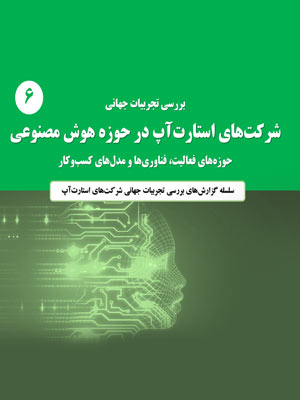




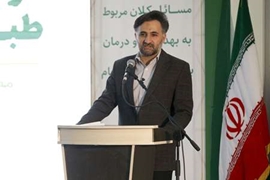
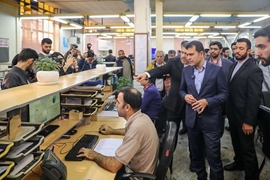
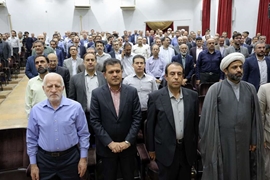
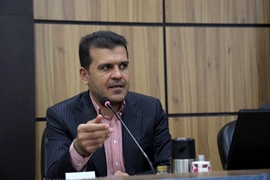
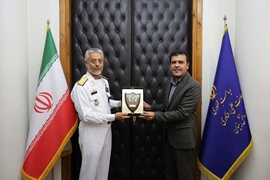
comment